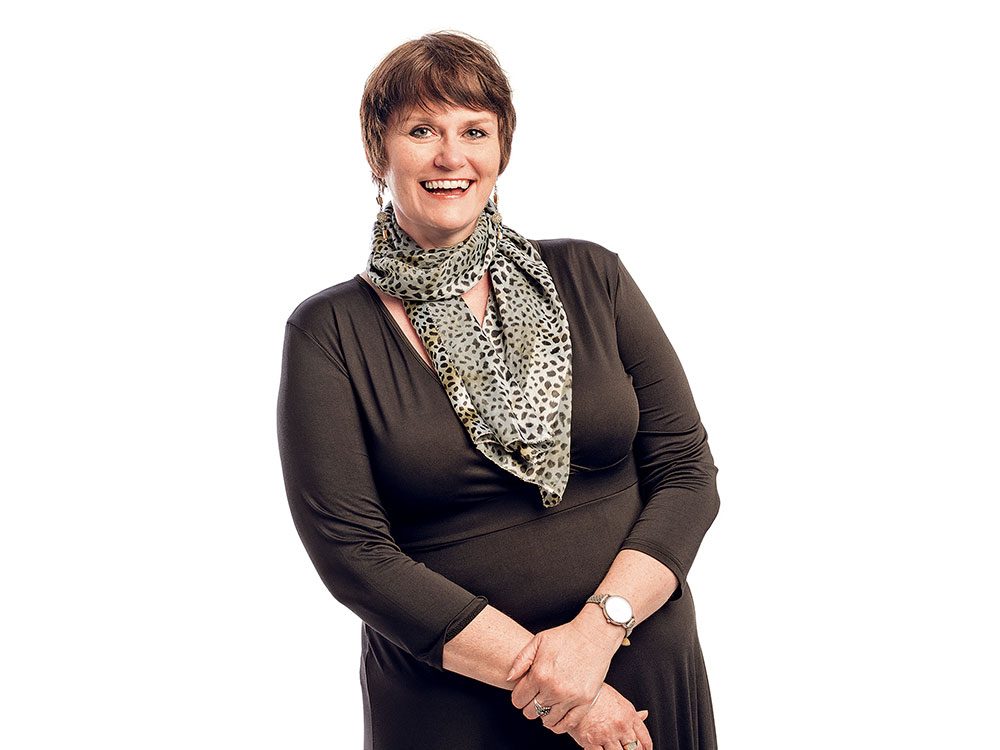Meet the Retired Paramedic Helping First Responders Cope with PTSD
Founded by retired paramedic Lisa Jennings, You Are Not Alone PTSD BC is a support and advocacy group for first responders speaking out about on-the-job trauma.

“I don’t want anyone to go through what I went through.”
On the morning of April 5, 1996, Hardeep Dhaliwal answered the phone, as he’s done thousands of times. A dispatch supervisor in B.C.’s interior, he’s spent 37 years fielding emergency calls from people needing ambulance services. This time, a little girl was on the line from Vernon.
“She described hearing gunshots and going outside to witness victims lying on the ground, bleeding,” he recalls. Dhaliwal kept her on the phone as he sent first responders to a neighbouring home, where people had gathered in preparation for a wedding. The abusive ex-husband of the bride’s sister had shot and killed his former partner and eight of her relatives before taking his own life. It was the second-deadliest mass murder in recent Canadian history, after the École Polytechnique massacre.
Twenty-two years later, that day still haunts Dhaliwal, 59. He struggles with post-traumatic stress disorder and wishes he’d had mental-health support when issues first arose. “I needed to take time off, but I had to use sick days because I was denied coverage,” he says. When those ran out, he was forced to return to work. With a mortgage and three children at home, he couldn’t afford an unpaid break. “If I’d been able to go through a treatment plan, I might have had a better, more normal life,” he says.
These days, an emergency dispatch call involving firearms will send his mind racing, and he struggles with recurring nightmares. What keeps him going: his family and a desire to foster frank workplace discussions about mental health.
Dhaliwal is one of more than 700 province-wide members of You Are Not Alone PTSD BC, a support and advocacy group for first responders speaking out about on-the-job trauma. Retired paramedic Lisa Jennings, 53, founded the organization in 2014—months after a fellow paramedic assaulted her, her work partner and a patient during a shift.
The incident led to what Jennings describes as “a complete nervous breakdown,” during which she pulled out chunks of her hair and began planning her suicide. After taking herself to the emergency room, she was diagnosed with PTSD—but wasn’t offered financial support from her employer. Too traumatized to return to work, Jennings declared bankruptcy in 2015. “I lost everything I owned,” she says. Homeless and with no family to turn to for support, Jennings lived in her car, and then, for a time, in social housing: “I was digging in garbage cans for sandwiches.”
Over the course of three years, Jennings tried and failed multiple times to receive workers’ compensation. Each refusal caused her further distress. In 2017, the WorkSafeBC appeals tribunal finally took her side and reversed the previous decisions. Memories of her hard-won victory still bring Jennings to tears; she now enjoys relative peace in a quiet home in the Vancouver area. Unable to work as a paramedic due to her condition, she dedicates most of her time to You Are Not Alone PTSD BC.
Her years of lobbying the provincial government to change the Workers Compensation Act have paid off. It’s now easier for first responders to receive compensation for recovery from PTSD and other mental-health injuries. Also, the provincial labour minister, Harry Bains, introduced a presumptive clause to the act in April 2018 that recognizes mental health disorders may arise from exposure to traumatic events at work for first responders. The clause received royal assent in May 2018.
The new legislation means first responders no longer have to prove they are suffering from a work-related mental health disorder to receive compensation for it. PTSD, Jennings says, is “an injury like any injury.” Recovery is possible only by taking time—and accessing resources—to heal.
Jennings and Dhaliwal are still working to widen the scope of the legislation to get emergency dispatchers like Dhaliwal covered by the act, which now protects paramedics, firefighters, police officers, sheriffs and corrections officers. “I call us the ‘first’ first responders,” he says.
Can a guitar help with PTSD? This Canadian is using music to give veterans new hope.



